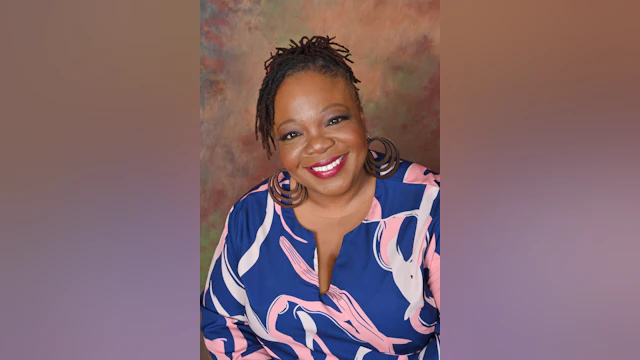This Volunteer Spotlight story originally appeared in AFSP's 2024 Annual Report. To read other inspiring Volunteer Spotlight stories, and to learn more about our work, click here.
LaKeitha Phillips was inspired to volunteer with AFSP, knowing from her own lived experience how greatly the Black community has been impacted by suicide, and wanting to see more minority representation in the crowd at her local Out of the Darkness Community Walk. She also knew it takes courage to share one’s story related to suicide, and that doing so could make a difference for others.
After first joining as a Walks volunteer, LaKeitha’s involvement grew, joining the education committee of the Virginia chapter, and supporting programs including Talk Saves Lives: An Introduction to Suicide Prevention in the LGBTQ Community, as well as becoming a facilitator for the newly piloted program L.E.T.S. Save Lives: An Introduction to Suicide Prevention for Black and African American Communities.
“This past year, I have been blessed to be able to present both Talk Saves Lives and L.E.T.S. Save Lives across the country virtually. The LGBTQ module of Talk Saves Lives has a special place in my heart because my mother, as well as many friends of mine, identify as members of the LGBTQ community. I knew that within that context, having an African American ally with lived experience would ease the way for those in attendance, and provide the opportunity for open dialogue.
Through the L.E.T.S. Save Lives program — the acronym stands for “listening, empathy, trust and support” — I bring in aspects of my lived experience and my life in the church to facilitate real conversations about suicide and its prevention. Through my local chapter, I play an active role in community outreach efforts, particularly among faith and other networks within the African American community. I now share my testimony with my church family: something I had not done previously.
I have learned that when people are exposed to educational moments that feel like conversations, they are more likely to absorb the information and engage. Sharing one’s vulnerability and relatability provides powerful currency when having these real conversations. There should be no fear involved in speaking about mental health and suicide. I am very proud to share my own experience with others if it helps to change even one mind or save one life. It feels so gratifying when I realize that someone has come to understand that the evidence-based prevention techniques we share in our education programs really do work. I am a living testimony to that.”
